Do doctors talk about their patients? Yes.
“Do doctors talk about their patients?” The short answer is yes and the rest of this blog post will give you specifics as to what is and isn’t allowed.

A recent study published by researchers at the University of California concluded that “Gossip is ubiquitous.”
In other words, it’s an inevitable part of our lives as human beings. We actively seek out information on other people only to share it with our inner circle of friends. Gossiping about the latest news from the neighborhood makes you the interesting person during that conversation, you have “the scoop.”
Maybe you’re not the biggest newsmonger. Still, I’d wager to bet that you either have a friend or know of someone who can’t live without talking about other people’s business. Even if you don’t like doing it, odds are you’ve participated in it at some point in the past.
You don’t have to admit it to me, just know we spend 80% of our conversations discussing the habits and news of other people.
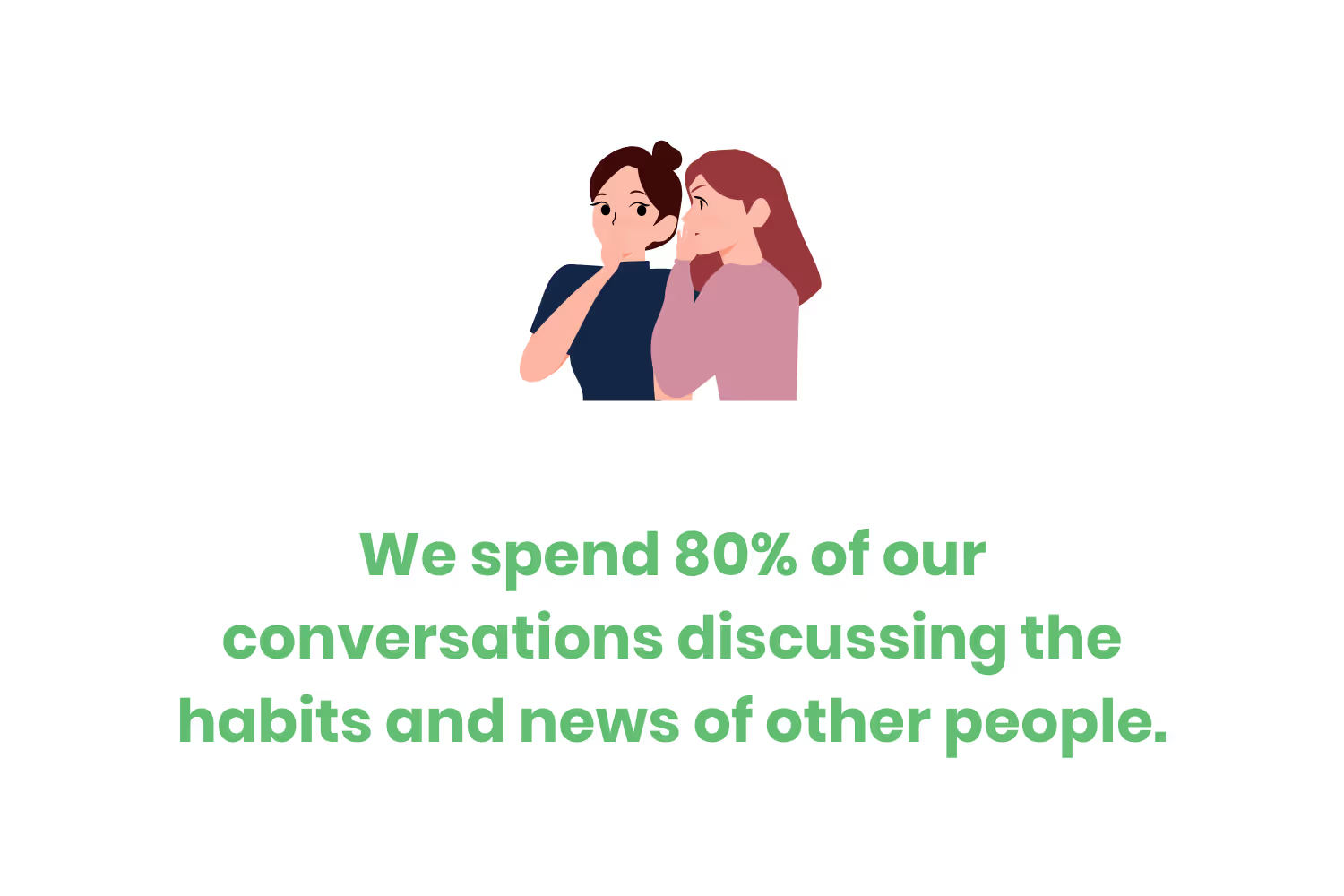
Although the same study also concluded that only a small portion of what’s discussed has malicious intent behind it, scenarios exist where gossip isn’t acceptable...to an extent.
Even after knowing that, you’ve probably wondered whether or not your doctor has ever talked about you as a patient. The short answer is yes and the rest of this blog post will give you specifics as to what is and isn’t allowed.
The Law That Covers Talking About Patients
One of the most common breaches of the Health Insurance Portability and Accountability Act (HIPAA) is when employees overshare, or gossip about patients.
There’s a section within that law that details what healthcare professionals and their business partners may and may not discuss among themselves called the Minimum Necessary Standard.
That section of the HIPAA Privacy Rule states that covered entities must make “reasonable efforts” to ensure that they limit any use or disclosure of protected health information (PHI) to the minimum necessary information to accomplish a purpose. More simply, PHI needs to stay as private as possible so that doctors and other healthcare professionals don’t access it or discuss it whenever they want to for whatever purpose.
You might’ve already seen headlines about legal action taken against hospitals and/or healthcare professionals for unauthorized conversation about celebrities who’ve checked in seeking medical attention.
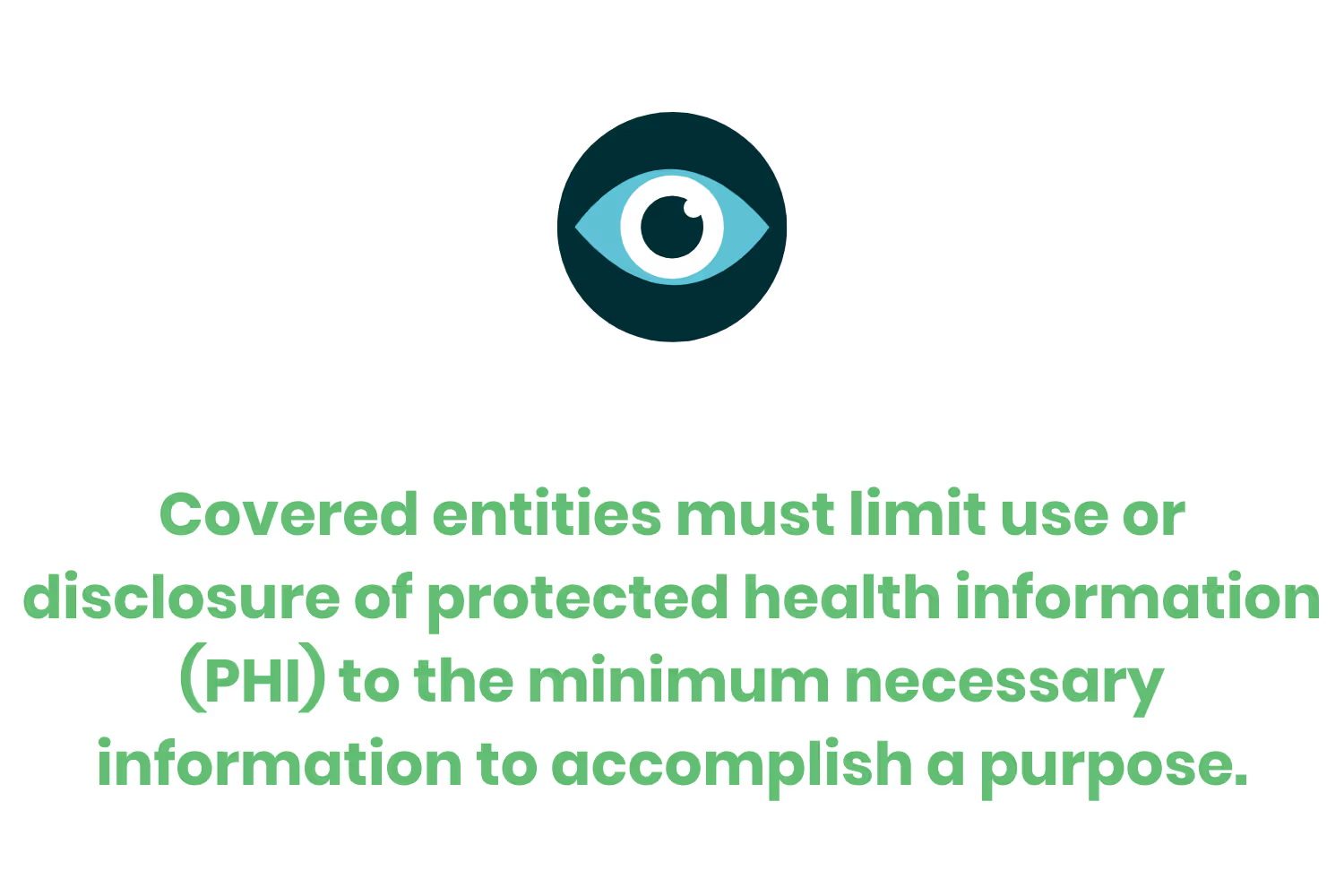
Those are perfect, real examples of violations of the HIPAA Privacy rule’s Minimum Necessary Standard.
Although celebrities are just people, this type of scenario sometimes brings the worst out in healthcare employees. In some instances, news reporters paid workers to share any information they could find on the visit.
Even with those real-world occurrences happening, though, you’ve probably heard some interesting stories about patient encounters from physicians either on their Youtube channel or while talking to them off the clock.
How is this allowed?
Examples of Doctors Telling Patient Stories
Let’s take a look at some examples where physicians and specialists talk about real-world scenarios with actual patients under their care.
This first example is an interesting one. Doctor Mike is a NY-certified Family Medicine doctor and social media influencer. He has an entire series devoted to reading and reacting to stories that other professionals post on Reddit.
Let me break that down. A licensed doctor reading and reacting to stories provided by other practicing professionals on a public social media platform. That sounds like a recipe for disaster, even if it is entertaining.
If you Googled, “weird patient stories”, you’d get over 50 million results in less than a second.
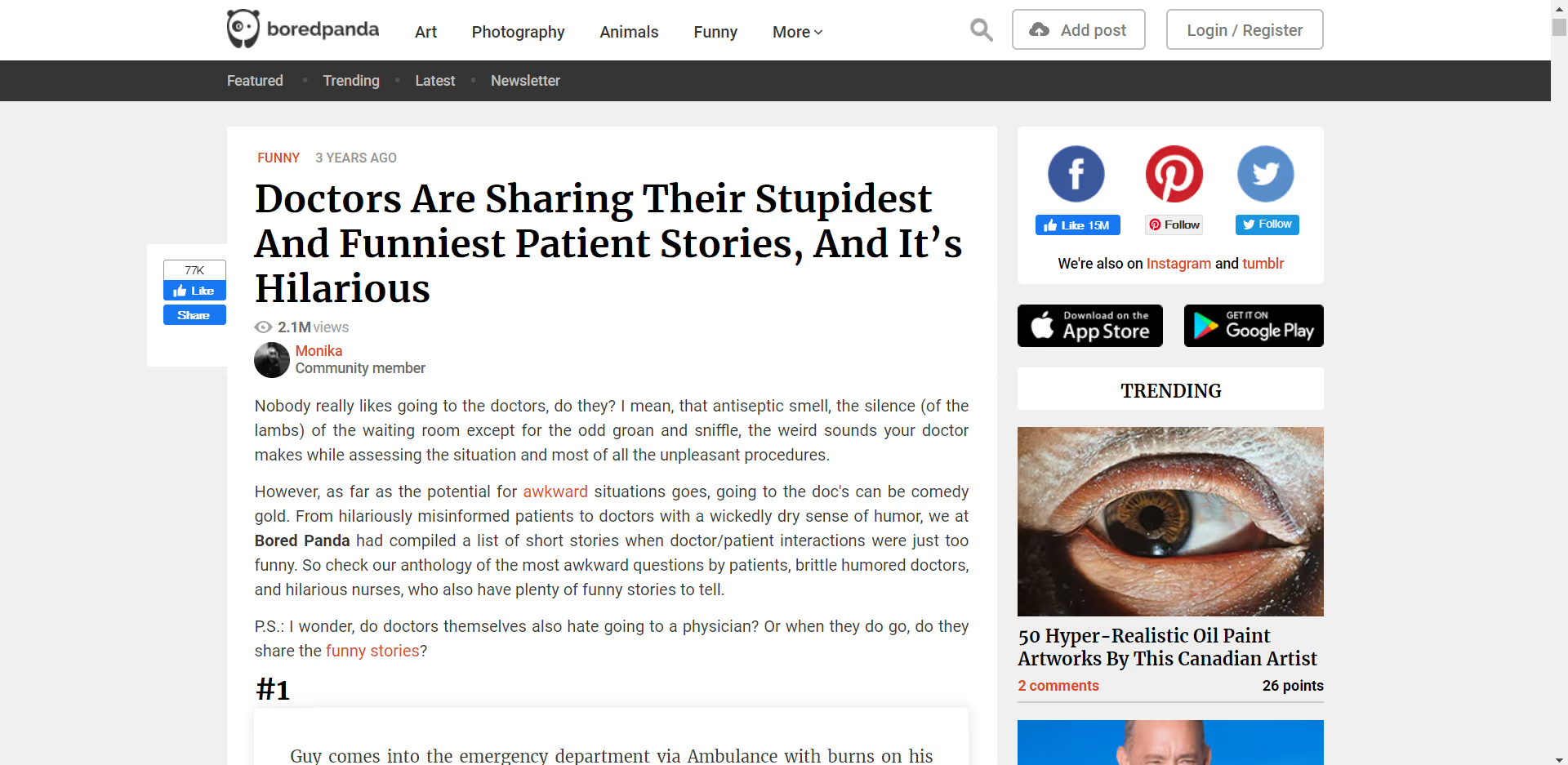
The image above is what greets you by clicking on the first result. The headline reads “Doctors Are Sharing Their Stupidest And Funniest Patient Stories, And It’s Hilarious”. That title isn’t meant to sympathize with the individuals who received treatment. It’s meant to grab people’s attention and clicks.
In fact, if you read that article only to find out that one of the stories was about you, you wouldn’t be very happy.
Yet, both of these examples don’t violate HIPAA in any way.
It's All About Identifiable Information
Healthcare professionals may talk about real-world experiences they’ve had with their patients all they want.
The only way they might break the rules is whether or not they give any identifiable information away during their storytelling.
I found a credible response to a similar question asked on the question-and-answer social media website, Quora.
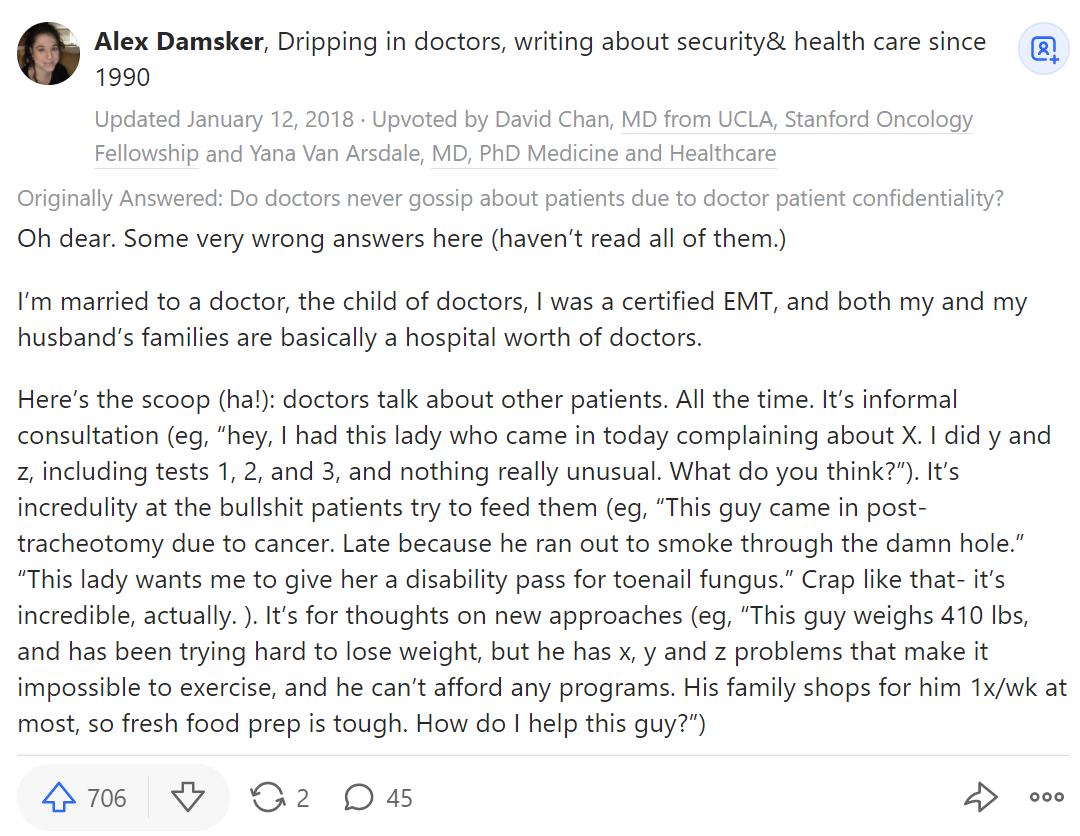
The author of the answer, Alex Damsker, is credible. She’s a former EMT who’s married to a doctor. Further, what she wrote received upvotes from practicing physicians in agreement to what she said.
In essence, she confirms that doctors do talk about their patients. But, most of the time they’re discussing their clients in a collaborative manner.
The first example she gives is exactly that. A patient came in with a problem, the physician ran a few tests and didn’t come up with anything. As a result, the doctor wants a professional opinion from one of his or her colleagues.
The next two examples aren’t necessarily helpful to patients. Instead, they’re more like venting.
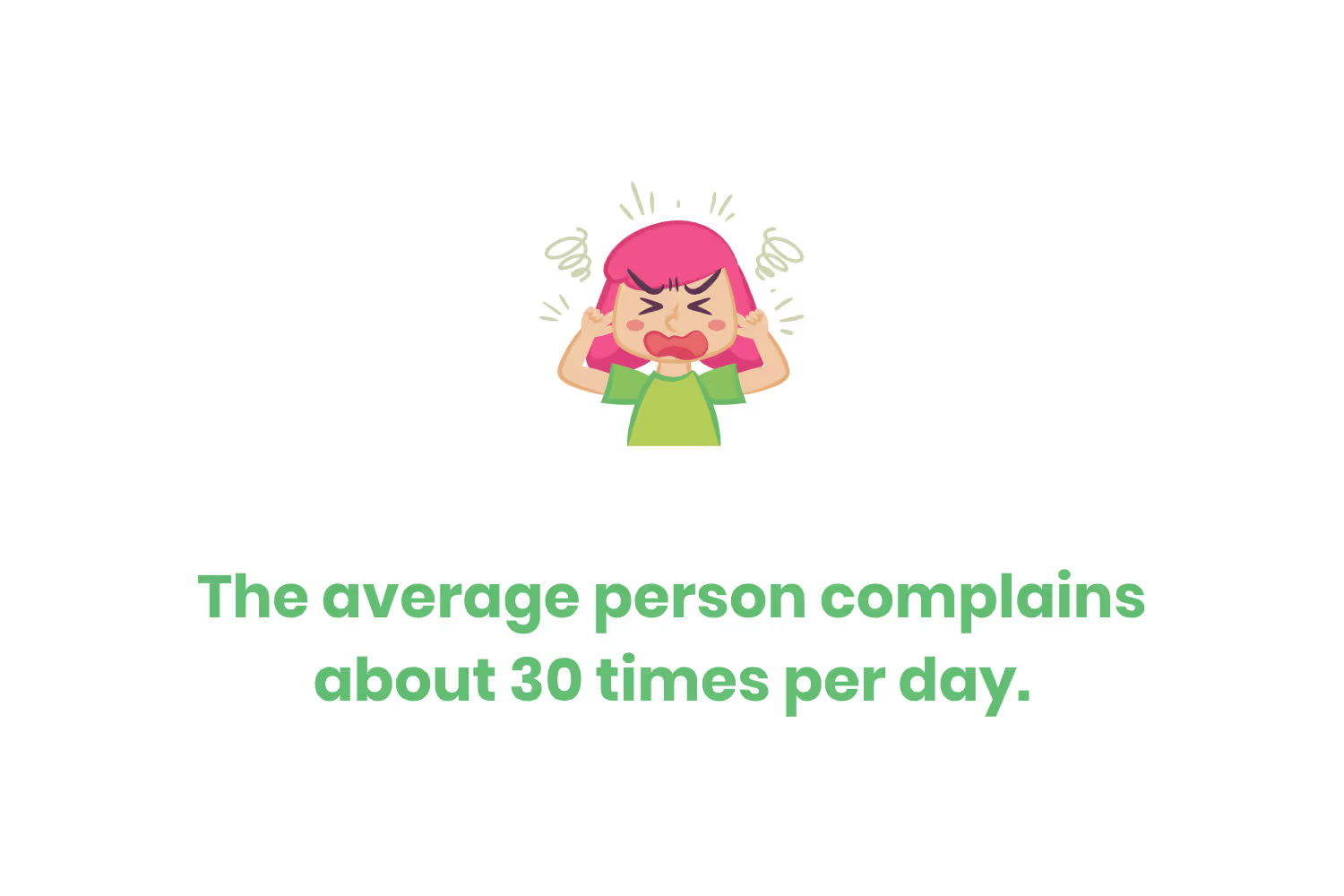
The average person complains about 30 times per day. If you happen to be a physician reading this blog post, I’m not trying to say that you complain a lot. The same study also acknowledges the fact that there are people who don’t gripe at all, maybe you fall under that category.
Either way, the point I’m trying to make is that it’s natural for everyone to discuss their work with others.
Even if they’re a licensed medical professional.
Yet, Alex Damsker’s answer to this question goes on further to ascertain that the venting that happens within the medical space isn’t malicious. She also exclaims that the majority of doctors, at least the ones she’s interacted with, view their job more as a calling.
In other words, they work their hardest to make sure that their clients feel better and receive the best treatment. This mindset also makes it much more likely that physicians will work overtime to help those that come in for appointments, which helps explain why this group of professionals is so burnt out
Finally, she confirms the first notion I mentioned within this section about prohibiting specific identifiers. That’s the line that medical professionals have to walk in order to avoid facing a fine for violating HIPAA.
When It's Allowed to Discuss Identifying Information
Beyond gossip, venting and collaboration, doctors have a job to do. They have to do everything in their power to help treat their patients.
There are certain scenarios that present themselves when the initial doctor that a patient goes to can’t perform what’s required for treatment. Of course, what I’m referring to is referrals.
Specialty doctors get most of their business from the network of professionals who refer their patients to them. Don’t take it from me. Take it from the “Pareto Principle”, which states that 80% of referred patients will come from 20% of referring practices.
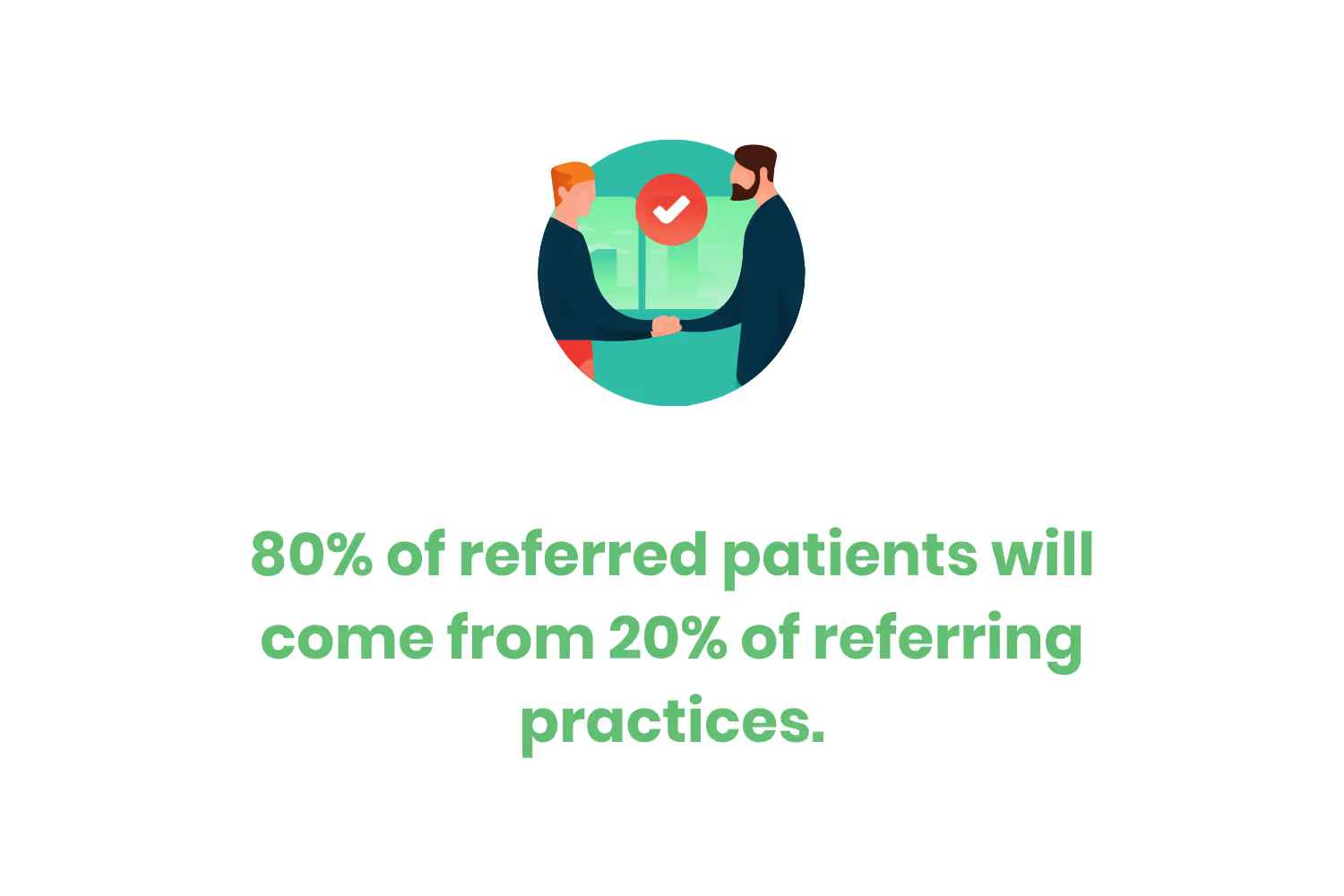
To perform the services on a patient as a specialty doctor, you’ll need to know their medical history and what they’re coming to you for. To ensure a smooth transition from family physician to specialist, there needs to be a transfer of information and explanation as to what’s happening.
Thus, it’s allowed for one doctor to talk about their patient to another.
I mentioned the Minimum Necessary Standard briefly at the beginning of this blog post. That portion of the law is surprisingly lenient. Specifically, it uses the phrase “professional judgment” often. In other words, the doctor may talk about their patients to others when they believe the discussion they’re having is in the best interest of their client.
So, the example given earlier with Alex Damsker’s Quora answer where the medical professional was trying to collaborate with others wouldn’t be a violation. The doctor sought consultation from other professionals to figure out whether or not they missed something.
The examples I gave even earlier in this blog post, where medical professionals are disclosing some of their “stupidest” interactions with patients are different. If the readers were able to identify who one of the stories was about, the narrator of the story would face consequences.
None of the stories disclosed in either the video or blog post are to the benefit of the patient. Rather, they’re for the entertainment of the viewers and readers.
Don't Be Negative
It’s important to understand that, as a patient, doctors exist to serve your needs. They commit to a decade of schooling and real-world evaluations to serve the healthcare space. Upon graduation, they then have to take an ancient oath to further commit themselves.
Yes, you could spend a lot of time researching real-world examples where doctors and/or other professionals within the space talked about their patients in a malicious way. If you wanted to argue the point I’m making in this section, you could.

Yet, you’ll notice that the malicious individuals in the cases you research also receive the worst consequences.
The reality is that we hold the entire healthcare industry to a high standard and instances where a breach in patient privacy occurs aren’t taken lightly.
The point of this blog post wasn’t to scare you into thinking that doctors are out to use your most confidential information against you. Instead, it was to clarify the line between when they can and can’t talk about you.
Conclusion
Doctors aren’t secret agents.
There are some similarities between the laws that both individuals have to follow, though. Both of them deal with highly classified information that could cause harm if it got in the wrong hands.
Yet, doctors do have some leeway when it comes to talking about their patients. Sometimes they have no choice but to share information about their client, especially if it’s related to a referral to a specialist. Other times they may want to ask for a second opinion from within their network of colleagues. Both scenarios fall under a good use of “professional judgment”.
Doctors deal with interesting scenarios, as a result, they may share a story with a blogger who’s trying to write an interesting article about isolated incidents in the operating room. That’s allowed, as long as the doctor doesn’t overshare and give out identifiable information about their patient.
The short answer to this age-old question is, “Yes!”
Emphasize your product's unique features or benefits to differentiate it from competitors
In nec dictum adipiscing pharetra enim etiam scelerisque dolor purus ipsum egestas cursus vulputate arcu egestas ut eu sed mollis consectetur mattis pharetra curabitur et maecenas in mattis fames consectetur ipsum quis risus mauris aliquam ornare nisl purus at ipsum nulla accumsan consectetur vestibulum suspendisse aliquam condimentum scelerisque lacinia pellentesque vestibulum condimentum turpis ligula pharetra dictum sapien facilisis sapien at sagittis et cursus congue.
- Pharetra curabitur et maecenas in mattis fames consectetur ipsum quis risus.
- Justo urna nisi auctor consequat consectetur dolor lectus blandit.
- Eget egestas volutpat lacinia vestibulum vitae mattis hendrerit.
- Ornare elit odio tellus orci bibendum dictum id sem congue enim amet diam.
Incorporate statistics or specific numbers to highlight the effectiveness or popularity of your offering
Convallis pellentesque ullamcorper sapien sed tristique fermentum proin amet quam tincidunt feugiat vitae neque quisque odio ut pellentesque ac mauris eget lectus. Pretium arcu turpis lacus sapien sit at eu sapien duis magna nunc nibh nam non ut nibh ultrices ultrices elementum egestas enim nisl sed cursus pellentesque sit dignissim enim euismod sit et convallis sed pelis viverra quam at nisl sit pharetra enim nisl nec vestibulum posuere in volutpat sed blandit neque risus.

Use time-sensitive language to encourage immediate action, such as "Limited Time Offer
Feugiat vitae neque quisque odio ut pellentesque ac mauris eget lectus. Pretium arcu turpis lacus sapien sit at eu sapien duis magna nunc nibh nam non ut nibh ultrices ultrices elementum egestas enim nisl sed cursus pellentesque sit dignissim enim euismod sit et convallis sed pelis viverra quam at nisl sit pharetra enim nisl nec vestibulum posuere in volutpat sed blandit neque risus.
- Pharetra curabitur et maecenas in mattis fames consectetur ipsum quis risus.
- Justo urna nisi auctor consequat consectetur dolor lectus blandit.
- Eget egestas volutpat lacinia vestibulum vitae mattis hendrerit.
- Ornare elit odio tellus orci bibendum dictum id sem congue enim amet diam.
Address customer pain points directly by showing how your product solves their problems
Feugiat vitae neque quisque odio ut pellentesque ac mauris eget lectus. Pretium arcu turpis lacus sapien sit at eu sapien duis magna nunc nibh nam non ut nibh ultrices ultrices elementum egestas enim nisl sed cursus pellentesque sit dignissim enim euismod sit et convallis sed pelis viverra quam at nisl sit pharetra enim nisl nec vestibulum posuere in volutpat sed blandit neque risus.
Vel etiam vel amet aenean eget in habitasse nunc duis tellus sem turpis risus aliquam ac volutpat tellus eu faucibus ullamcorper.
Tailor titles to your ideal customer segment using phrases like "Designed for Busy Professionals
Sed pretium id nibh id sit felis vitae volutpat volutpat adipiscing at sodales neque lectus mi phasellus commodo at elit suspendisse ornare faucibus lectus purus viverra in nec aliquet commodo et sed sed nisi tempor mi pellentesque arcu viverra pretium duis enim vulputate dignissim etiam ultrices vitae neque urna proin nibh diam turpis augue lacus.




